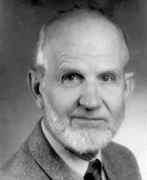Person: Hörmander, Lars

Lars Hörmander was a Swedish mathematician who won a Fields medal and a Wolf prize for his work on partial differential equations.
Mathematical Profile (Excerpt):
- Lars attended his first school in Mjällby, then made a daily train journey to attend a higher level school in a larger nearby town.
- Fremberg taught Hörmander the material covered in the first semester of Lund University while he was at the gymnasium in Lund.
- In 1948 Hörmander graduated from the gymnasium and began his studies at the University of Lund.
- Hörmander was awarded a bachelor's degree in the autumn of 1949 and a master's degree in the spring of 1950.
- Two months later, at the Christmas party, Hörmander met Viveka Sonesson who, two years later would become his wife.
- After Marcel Riesz retired in 1952 and went to the United States, Hörmander began working on the theory of partial differential equations.
- He had been well prepared to study this topic from Riesz's excellent lectures and he was also supported by the two new professors, Lars Gårding and Åke Pleijel who were both working on that topic.
- Before completing his doctorate, Hörmander spent the year 1953-54 doing military service but, since he was mainly undertaking defence research in Stockholm, he was able to continue reading mathematics during this time.
- When he returned to Lund in the autumn of 1954 he lectured in Lars Gårding's seminar which was held once a week.
- Hörmander was to give two lectures on Bourbaki style general topology and one of the postgraduate students at Lund, Vidar Thomée, attended his first lecture.
- The problem was solved by Gårding who told Thomée that he would deliver the second lecture and Hörmander would teach him the necessary mathematics.
- Hörmander's doctorate was completed in 1955 when he was examined on this thesis On the theory of general partial differential operators on 22 October of that year.
- His formal thesis advisor had been Gårding but in reality Hörmander had worked independently, finding his own problems and solving them.
- Jacques-Louis Lions asked questions in French, Bent Fuglede spoke in Danish and Nils Aslund asked his first question in Hungarian! Hörmander was awarded a "distinction" for both the thesis and for his defence.
- On 4 November, Hörmander gave a lecture to prove his abilities for a lectureship.
- He lectured on "The Fourier transform" and was examined by Erik Larsson, a chemist who was assistant dean, and by Åke Pleijel.
- Before a decision was made on the professorship Hörmander left for a visit to the United States where he spent time at the universities of Chicago, Kansas and Minnesota.
- Lars's lectures were wonderful, and there was excitement and enthusiasm around him.
- Lars Hörmander had been familiar for quite a long time with Schwartz theory, but he had noticed that many mathematicians, including his mentor Marcel Riesz, were rather negative (to say the least) about it.
- During his thesis work, Lars Hörmander managed to avoid explicit reference to Schwartz theory, but in 1963, it was a different story and he chose to present Schwartz Distribution Theory as the basic functional analytic framework of his book.
- Lars was always present if he was not abroad.
- Lars was always available for consultations.
- Many people have contributed but the deepest and most significant results are due to Hörmander.
- In 1963 Hörmander made an arrangement which allowed him to spend the academic teaching year in Stockholm while he spent spring and summer at the University of Stanford in the United States.
- Hörmander spent from 1964 to 1968 at Princeton but felt the pressure of a full time research position so returned to Sweden to take up the chair of mathematics at the University of Lund in 1968.
- Hörmander's text, An Introduction to Complex Analysis in Several Variables, has become a classic dealing with the theory of functions of several complex variables.
- As noted above, on 1 January 1996 Hörmander retired and was made professor emeritus by the University of Lund.
- We should say a little about Hörmander's personality.
- We have mentioned above a number of awards that Hörmander received.
- There is one other major award that we must mention, namely the Wolf Prize which was awarded to Hörmander in 1988.
Born 24 January 1931, Mjällby, Blekinge, Sweden. Died 25 November 2012, Lund, Sweden.
View full biography at MacTutor
Tags relevant for this person:
Prize Fields Medal, Origin Sweden, Prize Wolf
Thank you to the contributors under CC BY-SA 4.0! 

- Github:
-

- non-Github:
- @J-J-O'Connor
- @E-F-Robertson
References
Adapted from other CC BY-SA 4.0 Sources:
- O’Connor, John J; Robertson, Edmund F: MacTutor History of Mathematics Archive
